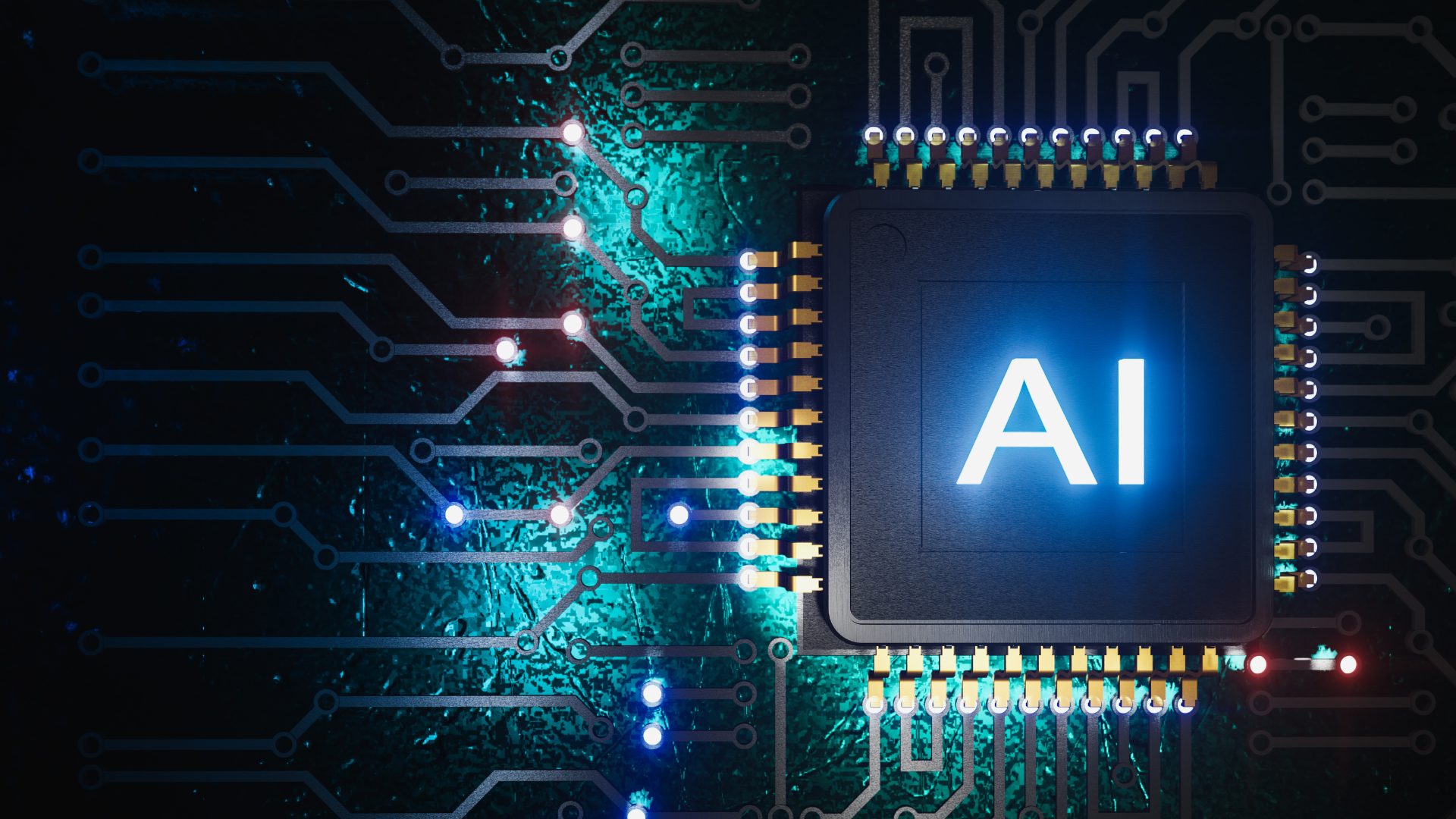
Exploring the Role of AI in the 2025 RPG Experience: What’s Next for NPCs and Game Worlds?
Artificial intelligence (AI) has always played a pivotal role in the development of role-playing games (RPGs), but as we approach 2025, the role of AI in gaming is poised for a revolution. From hyper-realistic NPC behaviors to AI-driven narratives, RPGs in 2025 will feature some of the most immersive and dynamic worlds ever seen in the genre. In this article, we’ll explore how AI will transform RPG experiences, enhancing gameplay, storytelling, and player interaction in ways we’ve never experienced before.
RPGGAME INDUSTRYGAMING TECH
Tama
1/21/2025
How Artificial Intelligence Will Shape RPGs in 2025: The Future of Dynamic Worlds and NPC Interactions
Role-playing games (RPGs) have long been beloved for their immersive worlds, complex narratives, and rich character development. As technology advances, so too do the ways in which these games engage players. Artificial intelligence (AI) has been at the forefront of these innovations, making NPCs smarter, quests more dynamic, and game worlds more responsive to player actions.
By 2025, AI is set to redefine RPGs, from NPCs that react in more human-like ways to adaptive storylines that change based on player choices. The next generation of RPGs promises to deliver more nuanced, engaging, and reactive experiences, blurring the lines between scripted and emergent gameplay. This article takes a closer look at how AI will shape RPGs in 2025 and beyond, from enhancing NPC behavior to driving story and world-building in truly unprecedented ways.
AI-Driven NPCs: From Quest Givers to Fully Realized Characters
One of the most significant impacts of AI on RPGs is the evolution of non-playable characters (NPCs). In the past, NPCs often followed basic scripts, providing players with information, quests, or items but offering little in the way of complex interaction. However, with AI advancements, NPCs in 2025 RPGs are expected to be far more dynamic, adaptable, and integral to the player’s journey.
Contextual Dialogue: AI will allow NPCs to respond dynamically to player actions and choices. In previous RPGs, dialogue options were often predetermined and lacked nuance. With AI-driven dialogue systems, NPCs will respond not only to player choices but also to their behavior in the game world. For example, if a player frequently helps or harms a specific faction, NPCs will alter their interactions based on their perception of the player’s actions, resulting in personalized storylines and relationships.
Emotional Intelligence: Advanced AI can simulate emotional responses, making NPCs feel more human. These characters will have their own goals, motivations, and personalities, reacting to events and player behavior in ways that feel natural and authentic. Whether an NPC is a companion, a rival, or an antagonist, AI will make their emotions and reactions more convincing, allowing for deeper emotional engagement.
Dynamic Quest Givers: NPCs in 2025 RPGs may also take on more fluid roles, no longer limited to giving out static quests. Instead, their motivations and storylines will evolve based on AI-generated interactions. Quest-giving NPCs could change their requests based on how the player interacts with them, and some might even offer multiple quests at once that intersect or conflict with each other, creating more complex story webs.
Adaptive Storytelling: AI-Powered Narratives
In traditional RPGs, the story was generally linear, with set plot points that the player followed. While branching narratives and player choices introduced some variability, the core of the story often remained the same. However, as AI technology advances, RPGs in 2025 will feature more adaptive and personalized storytelling, driven by intelligent systems that can alter the narrative based on player decisions.
Emergent Storylines: With AI, RPGs can offer emergent storylines that evolve dynamically based on the player’s choices, actions, and relationships. Instead of pre-written story beats, the game could generate content based on how the player approaches different challenges. For instance, a player who chooses to side with certain factions may find themselves entangled in unexpected political intrigue, while another who acts more ruthlessly may face entirely different consequences.
AI-Generated Content: With the rise of AI-generated content, RPGs could include procedurally generated narratives, creating quests, characters, and events that feel unique to each playthrough. AI could draw upon a vast library of lore, character arcs, and world events to generate new storylines that maintain coherence within the larger game world, making each player's experience feel distinctly their own.
Player-Driven Character Arcs: The protagonist’s journey can be influenced by AI systems that respond to player behavior, including dialogue choices, combat tactics, and even exploration. For instance, if a player consistently acts in a morally gray way, the game might dynamically adjust their character arc, changing the way other characters perceive and interact with them.
AI in Combat and Enemy Behavior: More Dynamic and Intelligent Foes
Combat in RPGs has evolved from turn-based systems to real-time action, and with AI, enemies are becoming more intelligent and reactive than ever before. In 2025, expect RPGs to feature highly adaptive AI enemies that can challenge players in ways previously thought impossible.
Smarter Enemies: Traditional AI enemies typically followed set patterns, making them predictable. However, in 2025, AI-driven enemies will learn from the player’s behavior, adapting their strategies to present more dynamic challenges. If a player frequently uses a specific combat style, enemies may adjust to counteract those tactics, forcing the player to adapt.
Tactical Teamwork: AI will also enhance the behavior of enemy factions. Rather than acting as isolated individuals, enemies will coordinate with each other, engaging in group tactics, ambushes, and coordinated attacks. This teamwork will make battles more immersive and require players to think strategically, whether they're fighting alone or with companions.
Adaptive Boss Fights: Bosses in RPGs have traditionally been difficult encounters that rely on memorization of attack patterns. In 2025, however, AI will allow bosses to adapt their behavior in real-time. Players might find that their first approach to a boss no longer works after they’ve made significant progress, as the boss begins to anticipate and counter their moves.
AI and World-Building: Creating Living, Breathing Worlds
RPGs are defined by the depth of their worlds, and AI will revolutionize how game worlds feel and respond. AI-driven systems will make NPCs, environments, and even the game’s economy react intelligently to player actions, creating a living, evolving world.
Dynamic Ecosystems: AI could simulate ecosystems where animals, weather, and the environment change based on player activity. If a player over-hunts a region, it could lead to a scarcity of resources, forcing players to adapt. Similarly, a player who builds a settlement might see the local economy grow, attracting NPCs and generating quests tied to the region's development.
Evolving Cities: Cities and towns in RPGs could evolve based on player choices, with AI-driven systems that adapt the urban environment to the player’s actions. Helping a city’s economy might result in larger, more prosperous districts, while neglecting it could lead to decay, crime, and political unrest. This evolution will be more responsive and impactful than ever, with visible changes occurring as the player influences the world.
AI-Generated Content for World Events: RPGs may also feature AI-driven world events that feel unpredictable and unique. Whether it’s a sudden invasion, a natural disaster, or a political upheaval, these events could be generated by the AI in real-time based on the game world’s current status, creating a dynamic experience for players that feels alive.
Conclusion
The role of AI in RPGs is only going to grow as we head into 2025. With advancements in NPC behavior, narrative flexibility, dynamic combat, and world-building, AI will help create the most immersive, dynamic, and personalized RPGs to date. No longer will RPGs simply follow a pre-determined path; instead, they will evolve alongside the player, with each decision rippling through the world, characters, and story.
As AI continues to push the boundaries of what’s possible, we can expect 2025 RPGs to offer experiences that feel more personal, more reactive, and more immersive than ever before, setting the stage for a new era in interactive storytelling.
PlayEcho delivers the latest news, reviews, and insights from the gaming world, highlighting local talents and global trends for gamers everywhere.
FAQs
How will AI affect the story in RPGs?
AI will create adaptive narratives, where storylines evolve based on player actions and choices. Rather than following a linear plot, RPGs will feature dynamic narratives that reflect the player's unique journey.Will AI NPCs be more interactive in 2025 RPGs?
Yes, NPCs will be more responsive, with AI enabling them to react to players' behavior, emotional states, and decisions, creating more personalized interactions and relationships.Can AI improve combat in RPGs?
Absolutely. AI will make enemies smarter and more adaptive, ensuring that combat remains challenging and dynamic. Boss fights will also evolve based on player strategies.How will AI affect the world-building in RPGs?
AI will create living worlds that evolve based on player actions. Cities, ecosystems, and economies will respond to the player’s choices, making the game world feel more alive and immersive.Will AI-powered RPGs be more replayable?
Yes. With emergent storylines, adaptive NPCs, and dynamic world changes, each playthrough will feel unique, encouraging players to revisit the game and explore different outcomes.
Terms and Conditions
Privacy Policy
PlayEcho
Newest information about game industry and analysis.
Subscribe to our newsletter
© 2025. All rights reserved.








